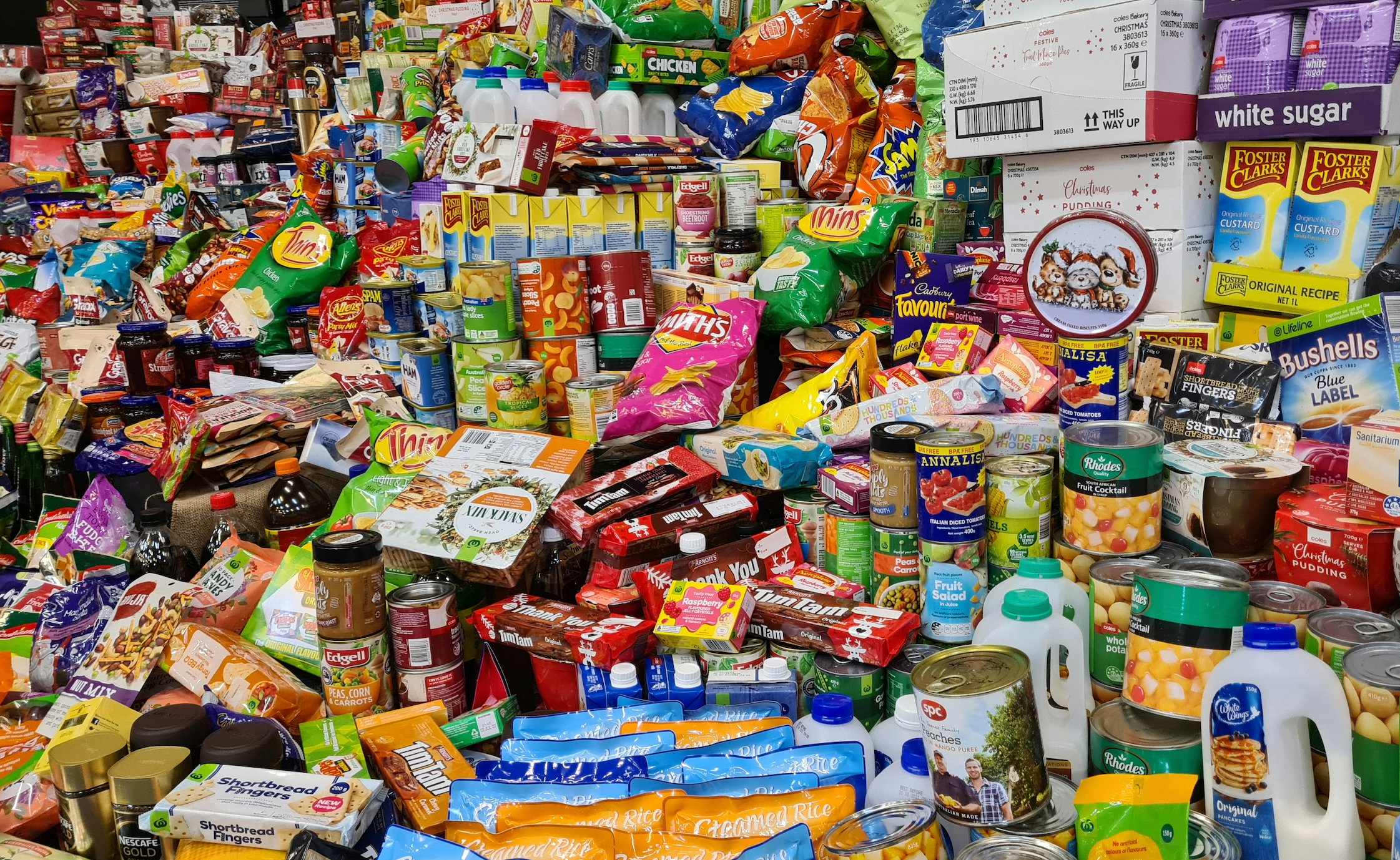Raspberry and Peanut Butter Smoothie Bowl
This banging smoothie bowl is packed full of goodness.
Sign up to The Body Coach newsletter to get inspiration in your inbox every Monday.

Ultra-processed food is everywhere – and we all eat it, to some degree. It’s tasty, quick, and convenient food to eat in our busy lives.
But in the past few years, we’re learning more about ultra-processed food (UPF), including what’s in it, what it does to our bodies, and why we can’t seem to get away from it.
The term ‘UPF’ was actually first created and introduced in 2009, by health researcher Carlos Monteiro and his colleagues at the University of São Paulo. But in recent years, people are starting to become more aware of the term and what this food contains.
In 2023, Dr. Chris van Tulleken wrote a brilliant book called Ultra-Processed People: Why Do We All Eat Stuff That Isn't Food... and Why Can't We Stop? Joe sat down with Dr. Chris van Tulleken in an Instagram Live to learn more about UPFs – and how you can make small, practical changes to eat better without feeling overwhelmed.
Here are 5 interesting things to know about UPFs, with insights from Dr. Chris van Tulleken.
Put quite simply, ultra-processed food (UPF) is food that contains ingredients like additives, preservatives, and artificial flavors that you wouldn’t usually use at home. Think ready meals, soft drinks, packaged snacks, and processed meats. These foods have a long shelf life.
“You can tell if a product is ultra-processed by looking at the ingredients,” said Dr Chris van Tulleken. “For example, a tin of beans may have modified corn starch and extracts – these are not the things you’d find in a typical domestic kitchen, so this makes the product ultra-processed. These additives are not necessarily unsafe (though some of them aren't great for you) but they indicate that a food is ultra-processed and we know a diet high in UPF is bad for your health.”
Not all UPFs are equal – for example a sugary fizzy drink is more harmful than mass-produced UPF wholegrain bread. But we do know that almost all UPFs have more than recommended levels of salt, sugar, and fat.
There’s research that shows a diet of largely ultra-processed food can link to increased risks of health conditions such as obesity, type 2 diabetes and heart disease.
It would be easy to think you have to avoid these foods completely – but that isn’t realistic, said Chris. “I never tell anyone to stop eating UPF. For millions of people it is the main food they can afford and access. Instead of thinking about it as food that is forbidden, my suggestion is to keep eating it,” he says.
“The food itself will be your greatest teacher and it's only by eating it that you'll start to understand it. Lots of people find that if they continue to eat UPF while learning about it, it becomes less appealing.”
There are lots of people who just eat ultra-processed food out of habit, said Chris. And it’s true – buying a packet of cereal bars is much easier than making them all yourself.
Think about a snack that you’d consider “more-ish”. Pringles, for example. You get such a rush from eating these products, you go back and eat more and more. It’s incredibly hard to eat a lot of ultra-processed food in moderation, said Chris.
“That's quite common and we feel guilty for that, but ultimately these products are cleverly engineered so that you eat more of them,” he said. “They want you to buy it, eat it quickly. Then you can go back to the shop and buy another one, right? Because the companies that make them are driven primarily by profit.”
The issue is, to make profit they hammer down the price of ingredients. “So rather than use a strawberry, for example,” said Chris, “they’ll use ethyl methylphenol and add a strawberry flavour. This will be a fraction of the price. Most of the additives you see on packaging are used to make you eat more or to save money on real ingredients.”
It’s worth noting that many UPFs – cereal bars, for example – are branded as "healthy" or "natural", but still have very high levels of sugar, salt, fat and calories, as well as containing additives which there is worrying evidence around – like emulsifiers and artificial sweeteners.
“If I had one ambition, writing my book, it was to reduce the stigma around diet-related disease, including obesity,” said Chris. “It's so easy to start heaping responsibility onto people and shaming them – and that's completely wrong. People are the way they are because the food environment is engineered to drive excess consumption.”
There will be few, if any, people in this world that live in a fully ultra-processed-free diet. “Most people, at some point during the week, are going to be having these foods – but it's about allowing that balance and not having fear of guilt,” he said.
It’s important to remember that ultra-processed foods are often cheaper, too. For people on low-incomes, this may be their only option when healthy, fresh food is much more expensive. “We need to change the system and not shame people,” said Chris. “Harmful food should have warnings on it and real food should be much cheaper and more widely available.”
Joe is passionate about the power of making small changes to live healthier and happier lives. It’s not easy to have a UPF-free diet, but you could start by:
You can read more about UPFs in Dr. Chris van Tulleken’s book, Ultra-Processed People: Why Do We All Eat Stuff That Isn't Food... and Why Can't We Stop?.
This article was written by The Body Coach team.